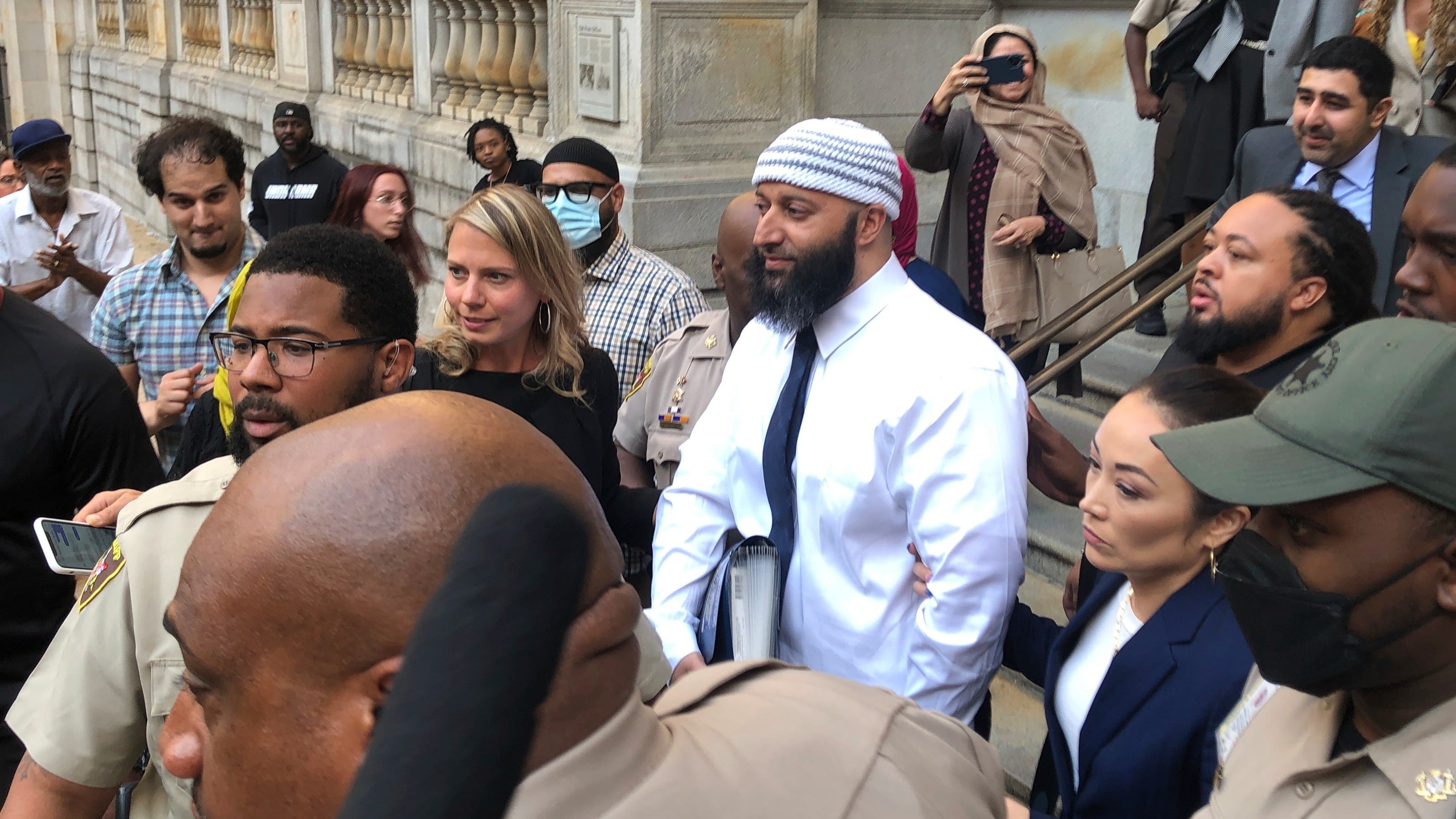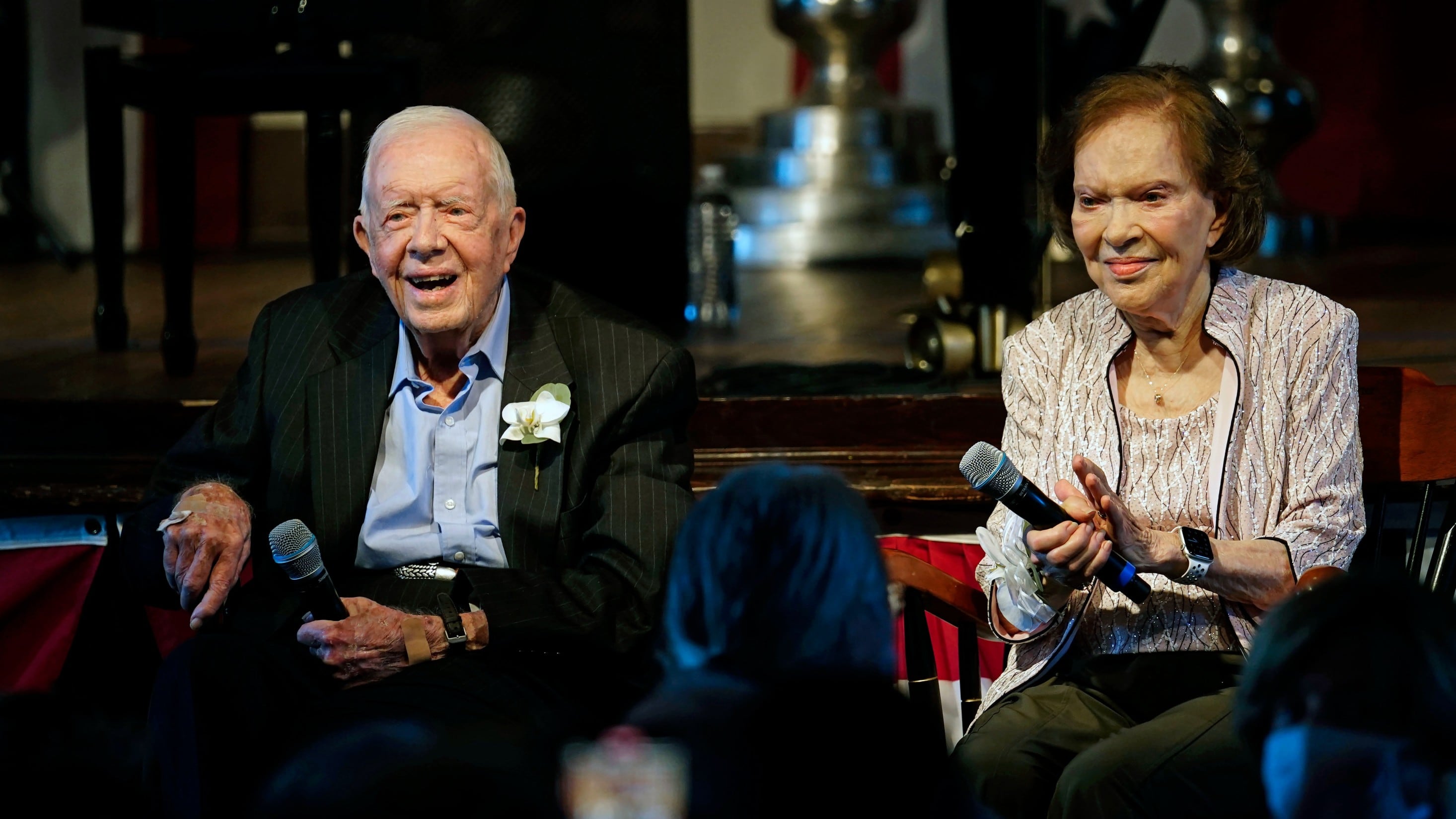By Brian Witte and Lea Skene
A Maryland appellate court on Tuesday reinstated Adnan Syed's murder conviction and ordered a new hearing in the case, marking the latest development in the protracted legal odyssey chronicled in the hit podcast “Serial.”
Though Syed's conviction has been reinstated, he will not immediately be taken back into custody.
In a 2-1 decision released Tuesday, the Appellate Court of Maryland ruled a lower court failed to give sufficient notice to the victim’s family when it scheduled the September hearing that vacated Syed’s conviction and allowed him to regain his freedom after more than two decades behind bars.
The intermediate court's order does not go into effect for 60 days, which delays any immediate consequences and allows the parties time to decide whether to appeal and schedule upcoming proceedings accordingly.
Syed’s attorney Erica Suter said they will ask the state supreme court to review the case.
Maryland law provides victims with the right to prior notice of conviction vacatur hearings, and that right was violated in the case of Hae Min Lee's brother, the appellate court ruled. Syed was convicted in 2000 of killing Lee, his high school ex-girlfriend whose body was found in a makeshift grave after her disappearance in 1999.
Baltimore prosecutors moved to vacate Syed's conviction in September after they reviewed the case and found alternative suspects and unreliable evidence used at trial. The lower court then quickly scheduled a hearing on the state's motion to vacate.
Lee's brother, Young Lee, was notified on a Friday afternoon that the hearing would take place the following Monday. Giving him only one business day before the hearing was “insufficient time to reasonably allow Mr. Lee, who lived in California, to attend the hearing in person,” instead requiring him to attend remotely, the appellate court ruled.
Young Lee attended the hearing via Zoom after the judge denied his request to postpone the proceedings one week to allow his in-person attendance.
The Lee family spent decades believing justice had been served, only to be treated as an afterthought when prosecutors decided their case was actually flawed from the beginning, their attorneys have argued. The appellate court largely agreed.
“Allowing a victim entitled to attend a court proceeding to attend in person, when the victim makes that request and all other persons involved in the hearing appear in person, is consistent with the constitutional requirement that victims be treated with dignity and respect,” the court ruled.
The court also said the new hearing should be more transparent, requiring that “evidence supporting the motion to vacate is presented, and the court states its reasons in support of its decision.”
David Sanford, an attorney representing Young Lee, said that piece of the ruling in particular has serious implications because it means there will be “evidence for the world to see and examine.”
“We are delighted that the court agrees with Mr. Lee,” he said. “Decisions made by courts should not be based on secret evidence.”
But Suter said “there is no basis for re-traumatizing Adnan by returning him to the status of a convicted felon.”
“For the time being, Adnan remains a free man," Suter said.
After Syed's conviction was vacated, Baltimore prosecutors had 30 days to decide whether to retry him. They announced their decision to drop the charges eight days before the deadline was up — while an appeal from the Lee family was pending.
The appellate judges interrogated that timeline and concluded the state acted “with the purpose ... of preventing Mr. Lee from obtaining a ruling on the appeal,” which Syed's attorneys later argued was moot because there were no underlying charges.
During oral arguments last month, the three-judge panel focused much of their questioning on whether the appeal should be considered moot.
The judges also considered whether crime victims or their representatives have a “right to be heard” at conviction vacatur hearings, as the Lee family asserted in their appeal. The judges said they were not persuaded by that argument, ruling victims have no right to substantive participation in such hearings, which could include presenting evidence. They said a ruling to the contrary would “result in a huge shift in practice.”
What happens next remains somewhat unclear.
The Baltimore State's Attorney's Office is reviewing the ruling.
Their position is further complicated by a recent change in leadership. The current state's attorney, Ivan Bates, took office in December — not long after his predecessor, Marilyn Mosby, decided to drop the charges against Syed, saying additional DNA testing had excluded him as a suspect. That was after her office conducted a yearlong review of the case and found prior prosecutors made significant missteps. Prosecutors knew about two alternative suspects but failed to disclose that information to the defense, Mosby's office wrote.
Her decision to re-examine the case came after Syed's appeals were repeatedly denied. Even after the “Serial” podcast raised numerous questions about the evidence that resulted in Syed's conviction and garnered a massive following of supporters, Syed remained behind bars for several more years. In social media posts Tuesday, many of his supporters asked whether the appellate court decision would ultimately return Syed to prison.
Mosby issued a statement saying that the “decision sets a dangerous precedent over a prosecutor’s ability to reverse an injustice.”
“We notified the victim’s family in line with Maryland law and best practices, and they attended virtually and spoke,” she said. “To now send this case back to court prolongs the pain for the Lee family, and leaves a cloud hanging over a man who deserves to be free, Adnan Syed.”
Updated March 29, 2023 at 5:59 a.m. ET with additional details.













